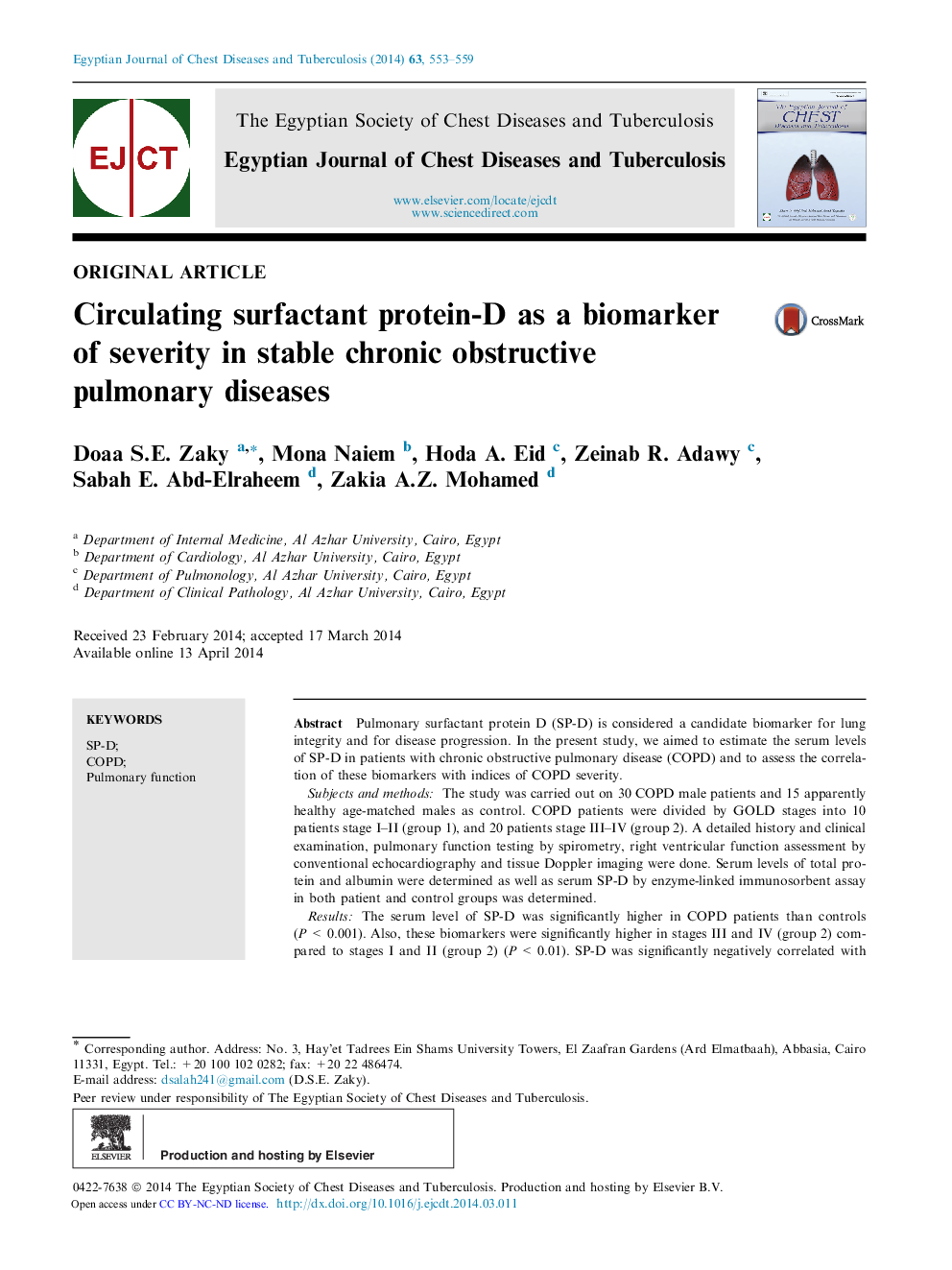| Article ID | Journal | Published Year | Pages | File Type |
|---|---|---|---|---|
| 3400174 | Egyptian Journal of Chest Diseases and Tuberculosis | 2014 | 7 Pages |
Pulmonary surfactant protein D (SP-D) is considered a candidate biomarker for lung integrity and for disease progression. In the present study, we aimed to estimate the serum levels of SP-D in patients with chronic obstructive pulmonary disease (COPD) and to assess the correlation of these biomarkers with indices of COPD severity.Subjects and methodsThe study was carried out on 30 COPD male patients and 15 apparently healthy age-matched males as control. COPD patients were divided by GOLD stages into 10 patients stage I–II (group 1), and 20 patients stage III–IV (group 2). A detailed history and clinical examination, pulmonary function testing by spirometry, right ventricular function assessment by conventional echocardiography and tissue Doppler imaging were done. Serum levels of total protein and albumin were determined as well as serum SP-D by enzyme-linked immunosorbent assay in both patient and control groups was determined.ResultsThe serum level of SP-D was significantly higher in COPD patients than controls (P < 0.001). Also, these biomarkers were significantly higher in stages III and IV (group 2) compared to stages I and II (group 2) (P < 0.01). SP-D was significantly negatively correlated with serum albumin (P < 0.01) and FEV1 (P < 0.05) and not correlated with any of right ventricular function indices measured by echocardiography.ConclusionSP-D is a promising biomarker for severity in stable COPD patient. The low serum albumin could contribute to elevated serum SPD with deteriorated lung functions in stable COPD patient.
